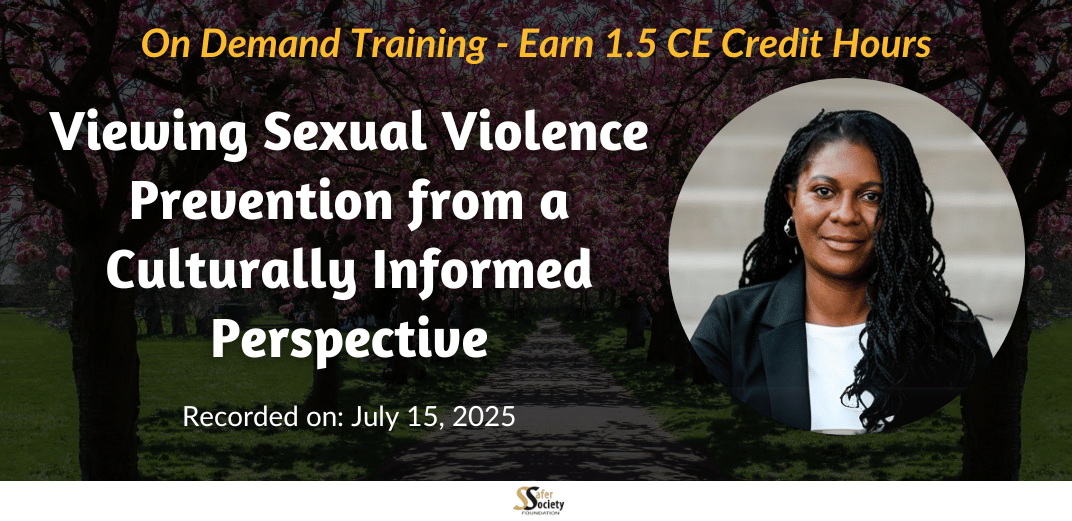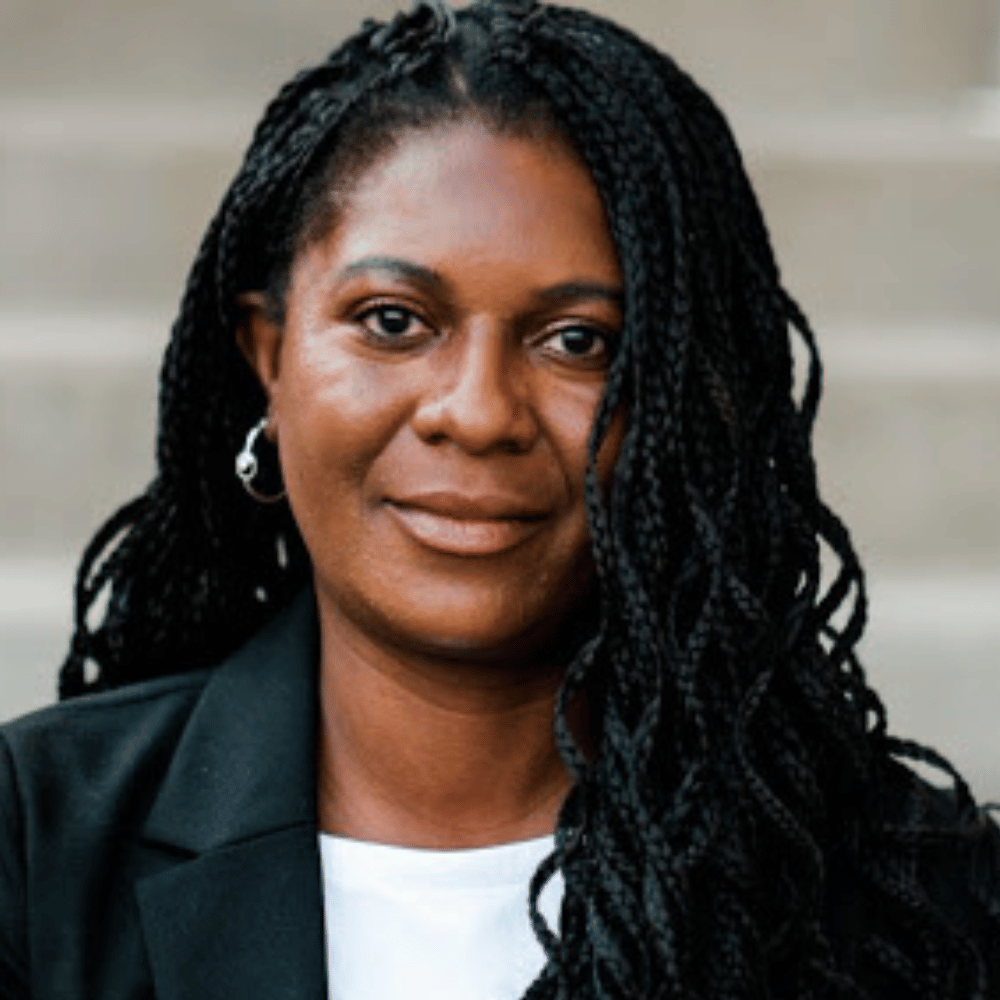
Viewing Sexual Violence Prevention from a Culturally Informed Perspective
Already purchased an On Demand training?
Click here to access your Safer Society On-Demand Training Center account.
Please note: Access to this on-demand training is complimentary; however, participants seeking a Certificate of Completion will be charged a $15 processing fee. Additional information will be provided upon registration.
Our field’s understanding of strategies to mitigate violence has evolved significantly, expanding beyond a sole focus on risk in assessment and treatment. Yet, there remains much to learn about working with clients from cultures and backgrounds different from our own. To truly prevent violence and abuse, it is essential that professionals in our field openly discuss both our current knowledge of cultural sensitivity and the gaps that remain with one another and our communities beyond. Embracing cultural humility and committing to lifelong professional growth are key to this process.
In this free training, Dr. Alexander—an expert in culturally informed practices and policies—shares valuable lessons learned and explores future directions in the treatment  and prevention of violence, particularly with respect to culturally informed assessment and treatment. Among her key messages are:
and prevention of violence, particularly with respect to culturally informed assessment and treatment. Among her key messages are:
- Violence and abuse are preventable
- Assessment, treatment, and policy must be tailored to the cultural backgrounds of each client
- Committing to ongoing communication with other professionals, policymakers, and communities about what works to prevent abuse will help to make our programs more effective
- Person-centered language is an important component of culturally informed practice.
In particular, Dr. Alexander examines the current landscape of culturally informed practice and discusses how we can be more open to the cultural differences that make our communities different for the purpose of building services even more effective and impactful. She also addresses how we assess and treat individuals who have engaged in abusive behavior, and how we communicate with other professionals and policymakers about these processes and our clients.
Join us in listening to this important dialogue as we work together to deepen our understanding and enhance our practice.
1) Describe cultural humility and its core tenets
2) Explain the value of adopting a prevention perspective (as opposed to a purely risk-focused perspective) in the treatment of violence and sex offending
3) Apply person-centered language in sex offense practice
Audience
This training is primarily for professionals who work directly with people who have been abusive, experienced abuse, or are otherwise affected by it. It will be of particular interest to those who work with other forms of abuse, such as sexual violence. This includes mental health counselors, social workers, clinical psychologists, and forensic experts.
Content Level
Disclosure
Continuing Education Approval
American Psychological Association (APA)
Safer Society Foundation, Inc. is approved by the American Psychological Association (APA) to sponsor continuing education for psychologists. Safer Society Foundation, Inc. maintains responsibility for this program and its content.
Association of Social Work Boards (ASWB)
Safer Society Foundation, Inc., provider #233, is approved to offer social work continuing education by the Association of Social Work Boards (ASWB) Approved Continuing Education (ACE) program. Regulatory boards are the final authority on courses accepted for continuing education credit. ACE provider approval period: 06/06/2025—06/06/2026. Social workers completing this course receive 1.5 cultural competence & diversity continuing education credits.
Who's Presenting

Apryl A. Alexander, PsyD
Apryl Alexander received a B.S. in Psychology from Virginia Tech and M.S. from Radford University. She also received her M.S. and Psy.D. in Clinical Psychology from the Florida Institute of Technology with concentrations in forensic psychology and child and family therapy. Dr. Alexander completed her pre-doctoral internship at Patton State Hospital, the largest forensic psychiatric hospital in the country. She also completed her post-doctoral fellowship in forensic psychology at Minnesota State Operated Forensic Services (MSOFS) conducting competency to stand trial, competency to proceed, and criminal responsibility evaluations, as well as violence and sexual violence risk assessments. Dr. Alexander co-chaired the Conference Committee for the 2023 ATSA Conference in Aurora, Colorado. Currently, Dr. Alexander is Metrolina Distinguished Scholar in Health and Public Policy and Associate Professor at the Department of Public Health Sciences of The University of North Carolina at Charlotte. Her research interests are focused in the areas of violence, victimization, and forensic assessment.
